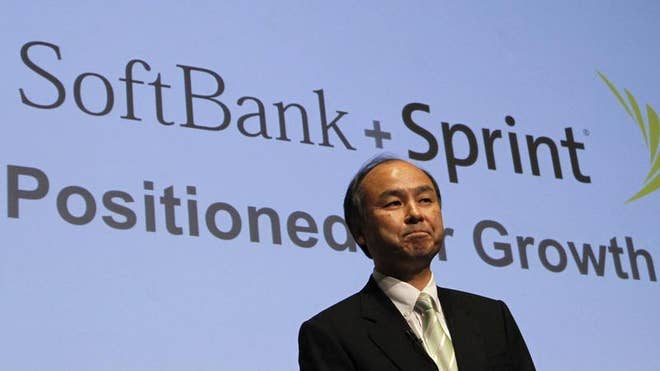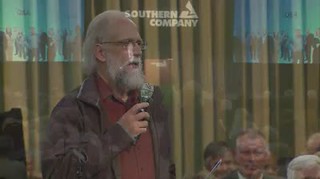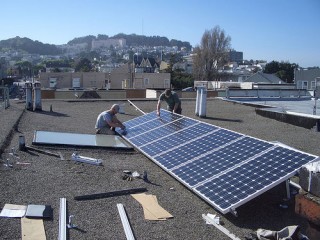Want more income, jobs, and creative workers?
Get as many people as possible to use fast affordable Internet connections:
that’s the result of a nationwide detailed study.
Adoption matters more than availability, and speed matters
for creative workers.
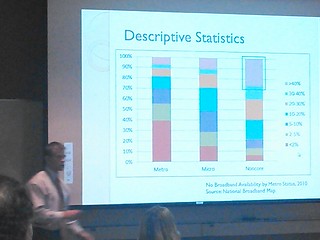 Broadband’s Contribution to Economic Health in Rural Areas: A Causal Analysis
Brian Whitacre, Oklahoma State University; Roberto Gallardo, Mississippi State University; Sharon Strover, University of Texas at Austin,
presented at the Telecommunications Policy Research Conference,
September 2013.
Broadband’s Contribution to Economic Health in Rural Areas: A Causal Analysis
Brian Whitacre, Oklahoma State University; Roberto Gallardo, Mississippi State University; Sharon Strover, University of Texas at Austin,
presented at the Telecommunications Policy Research Conference,
September 2013.
Conclusion and Policy Implications
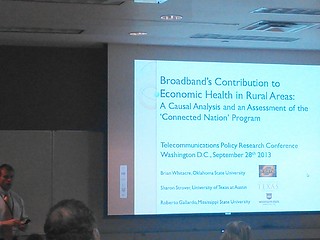 This research yields important findings on the effect of broadband
on economic gains, namely on household income and employment levels.
The ability to do matched county comparisons, specifically in
non-metro counties, demonstrates the influence of adoption (as
opposed to availability) in producing these positive outcomes, and
constitutes another indication that development efforts should focus
on mobilizing populations to subscribe to and use broadband
capabilities. Again, cultivating local leadership, mobilizing the
services of cooperative extension educators nationwide, and working
more closely with each State Broadband Initiative could be fruitful
avenues for targeting adoption.
This research yields important findings on the effect of broadband
on economic gains, namely on household income and employment levels.
The ability to do matched county comparisons, specifically in
non-metro counties, demonstrates the influence of adoption (as
opposed to availability) in producing these positive outcomes, and
constitutes another indication that development efforts should focus
on mobilizing populations to subscribe to and use broadband
capabilities. Again, cultivating local leadership, mobilizing the
services of cooperative extension educators nationwide, and working
more closely with each State Broadband Initiative could be fruitful
avenues for targeting adoption.
We’re in a fertile field for economic improvement this way:
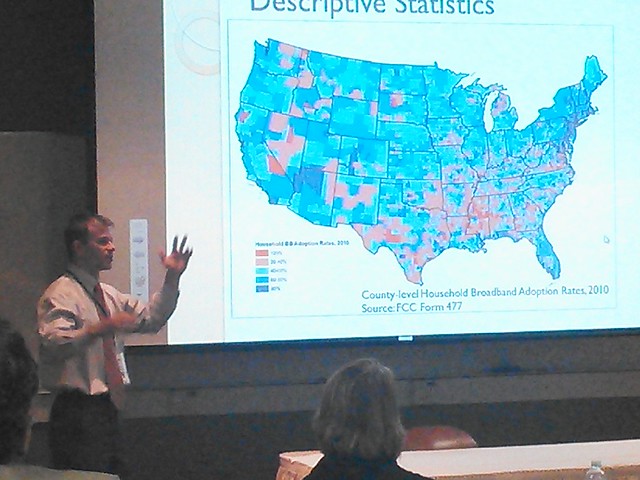
Figure 1 displays Continue reading →
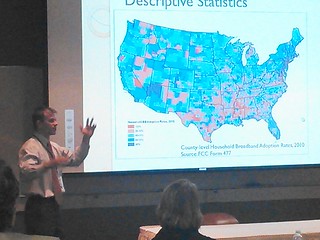 Use of fast Internet access by as many people as possible improves
local income and jobs, and fast Internet access is necessary for
creative workers, according to a nationwide detailed study.
Use of fast Internet access by as many people as possible improves
local income and jobs, and fast Internet access is necessary for
creative workers, according to a nationwide detailed study.






